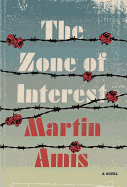I first met Lynn Rosen in 2012 at BookExpo America. At the time, she was the editorial director for Book Business magazine, a position she took on after a long career in book publishing as an editor, a literary agent and an educator. Lynn recently told me about a new path her publishing career is following: along with her husband, she is about to open a bookstore in her small suburban Philadelphia town. Happily for us, she will write an occasional column for Shelf Awareness about the experience of becoming a bookseller. The first installment follows. --John Mutter
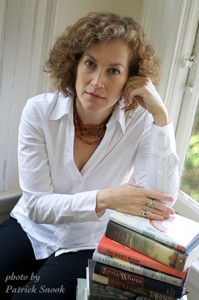 |
| Lynn Rosen |
There is a story I like to tell about something that happened when I was a young editor at Ballantine Books. I was presenting my first book at an in-house sales meeting in the big Random House conference room, and I was nervous, to say the least. The book I presented was by written by a high school teacher about his many moving experiences with his students, and I spoke of how readers would be touched by these stories. When I finished, one of the senior sales managers looked at me across the conference room table and asked: "What shelf is it going to go on in the bookstore?"
I was flummoxed. This was a question I had not anticipated, for I had never thought about the books I acquired in those terms. And yet this was to become one of the most important questions ever asked of me in my publishing career. What the question really meant, I came to realize, was: how was a reader going to find the book? As publishing expert Judith Appelbaum recently said to me in an interview for Publishing Perspectives, the route from publisher to reader is "risky and dicey and full of potholes."
I've been working in the book publishing industry for a long time, from my very first job in college and professional publishing as an editorial assistant at the now-defunct Pergamon Press, to my time as an editor at Ballantine and other houses (Running Press, Peter Pauper Press) and eight years running my own literary agency, Leap First. I have also taught publishing. I began my work as an educator teaching a graduate publishing class at Drexel University on how to write a book proposal, and for three years I was the program director for graduate publishing at Rosemont College. I have also written several books and cover publishing for several industry trade publications.
Through it all, in my work helping authors write books, doing my own writing, and teaching, that question posed to me all those years ago has stayed with me, the question of how the reader finds the book. So compelled was I to learn more about the answer to this question, that when I was living in Park Slope running my literary agency and Barnes & Noble announced it would open its first Brooklyn store there, I signed on as a bookseller. I worked with others before the store opened to receive boxes and boxes of new books and to unpack and shelve them. I was there when the first customers arrived, those eager to shop, and those eager to protest B&N opening so close to beloved local indie Community Books.
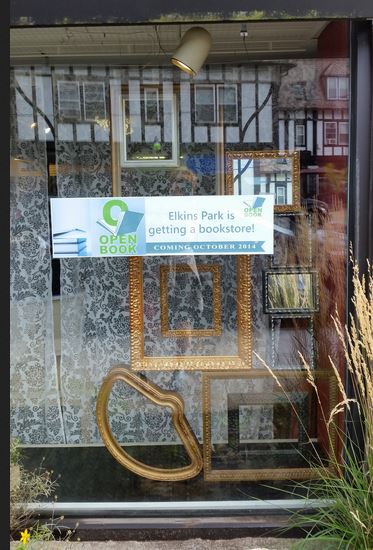 I stayed and I worked, learning that the job of bookseller is one of lifting and carrying, shelving and alphabetizing. I learned to keep a stock of clean tissues for the sneezing that the dusty shelves stimulated. I learned to help shore up the local author who was frustrated because the B&N computer system had allocated her lesbian mystery series to the Women's Studies section. Soon, I was promoted to work at the info desk, where I loved helping customers find books and recommending new ones. I learned well how important it is to know what shelf a book will go on.
I stayed and I worked, learning that the job of bookseller is one of lifting and carrying, shelving and alphabetizing. I learned to keep a stock of clean tissues for the sneezing that the dusty shelves stimulated. I learned to help shore up the local author who was frustrated because the B&N computer system had allocated her lesbian mystery series to the Women's Studies section. Soon, I was promoted to work at the info desk, where I loved helping customers find books and recommending new ones. I learned well how important it is to know what shelf a book will go on.
In 2002, my husband, Evan Schwartz, and I moved our family to my hometown of Philadelphia. In 2011, I launched Open Book, through which I create and run book discussion classes and author events. Last year, Evan (himself a former bookstore manager of both branches of the Bookbridge near Binghamton, N.Y.) and I decided to add a bookselling element to Open Book. Since I was recommending books that my students were purchasing on my recommendation, why not sell them ourselves? I applied for a sales & use tax number in Pennsylvania, and opened an account with Baker & Taylor.
When the nearest bookstore, B&N in Jenkintown, closed, we felt it was time to grow. We pitched the local food co-op on giving us space for the occasional pop-up bookstore, which was well-received by the community. And now, after over a year of off-site and mobile bookselling, we are taking the next step.
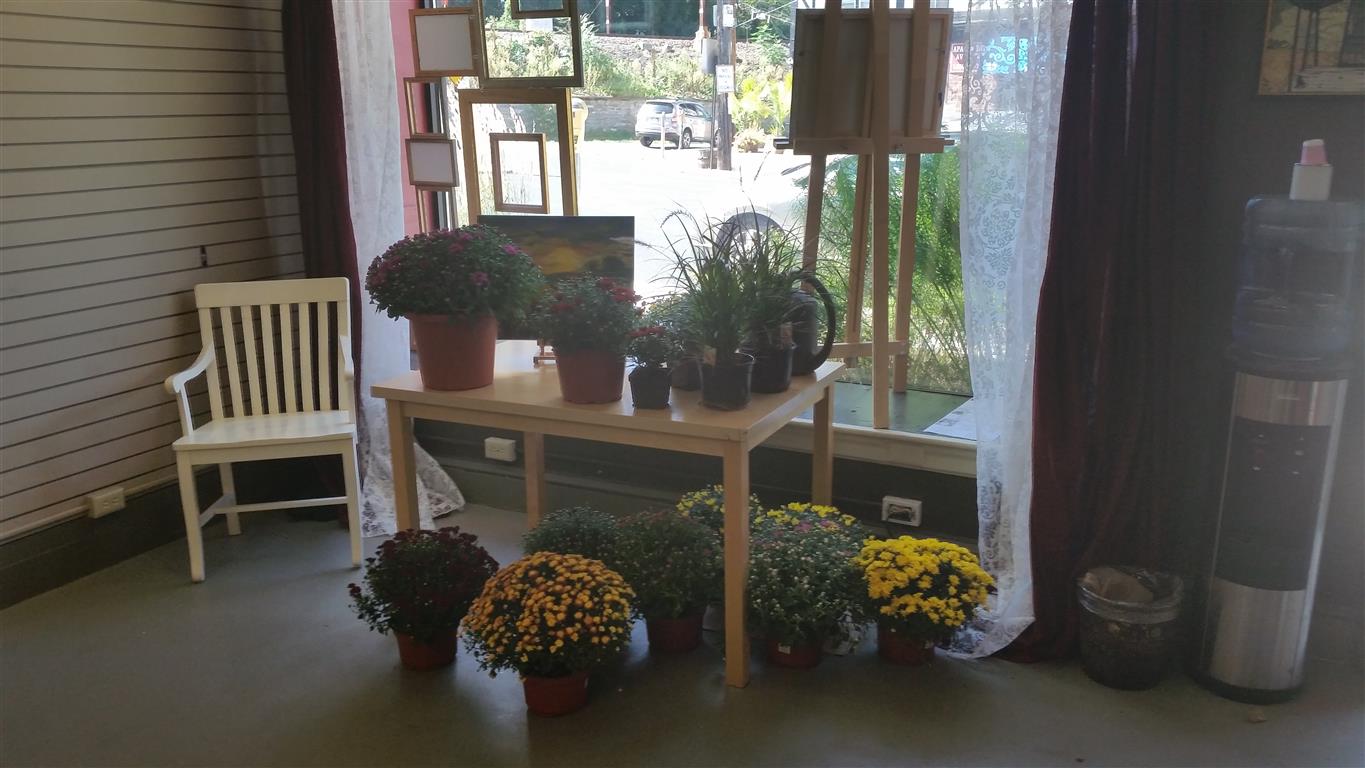 |
| The front of the store where Open Book will reside. |
Early next month, we plan to open a small bricks-and-mortar Open Book bookstore in our suburban town of Elkins Park, Pa. We've been invited to use space within an existing store. The proprietress of the long-time local business the Frame House is sub-leasing us 300 square feet in the front of her shop. It's a great small way, we think, to get a start bookselling in a community in which we live and are already actively involved.
And now, there is quite a lot to do. We've just joined ABA as new members. We have a lawyer friend helping us turn Open Book from a sole proprietorship into an LLC. We've gotten some quotes on insurance. We need to come up with enough money to purchase fixtures and our starter inventory (what we have so far for the pop-up numbers in the hundreds--we know we will need thousands of new books, even for this small space), and we're considering a crowdsourcing campaign. And we are working on our business plan, and are rather stumped by the part where you need to estimate potential income. We'd love advice on how to do that!
I thank you in advance for welcoming me into this vital and important community of booksellers who are readers of Shelf Awareness. I in turn welcome you to reach out to me at lynn@openbookphilly.com with any ideas and suggestions. I look forward to hearing from you!
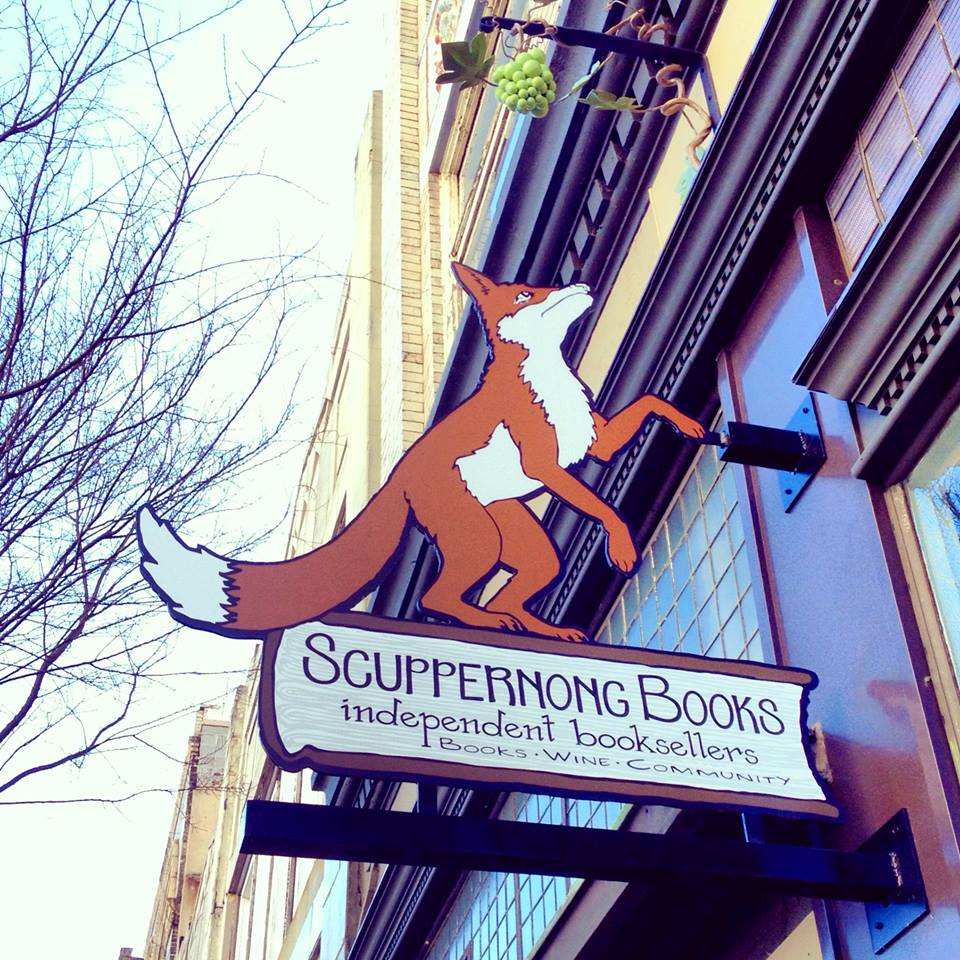 Scuppernong Books, the bookstore and wine bar in Greensboro, N.C., that opened in December 2013, has added three new owners, the Triad Business Journal reported.
Scuppernong Books, the bookstore and wine bar in Greensboro, N.C., that opened in December 2013, has added three new owners, the Triad Business Journal reported.


SHELFAWARENESS.1222.S1.BESTADSWEBINAR.gif)


SHELFAWARENESS.1222.T1.BESTADSWEBINAR.gif)
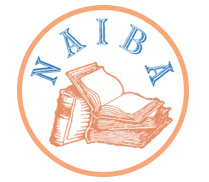 The
The 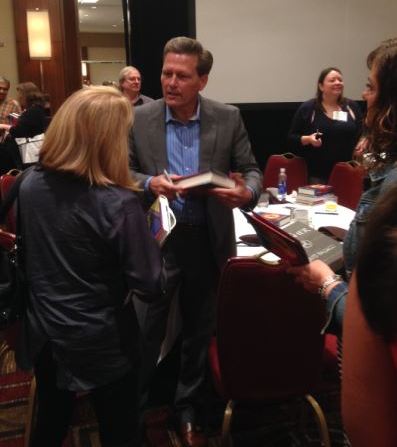
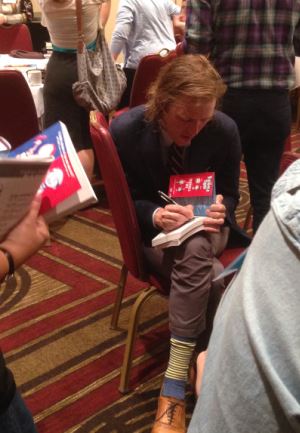
 BA president
BA president 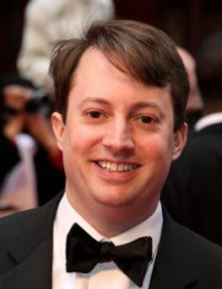 And in his keynote speech, comedian
And in his keynote speech, comedian 
 I stayed and I worked, learning that the job of bookseller is one of lifting and carrying, shelving and alphabetizing. I learned to keep a stock of clean tissues for the sneezing that the dusty shelves stimulated. I learned to help shore up the local author who was frustrated because the B&N computer system had allocated her lesbian mystery series to the Women's Studies section. Soon, I was promoted to work at the info desk, where I loved helping customers find books and recommending new ones. I learned well how important it is to know what shelf a book will go on.
I stayed and I worked, learning that the job of bookseller is one of lifting and carrying, shelving and alphabetizing. I learned to keep a stock of clean tissues for the sneezing that the dusty shelves stimulated. I learned to help shore up the local author who was frustrated because the B&N computer system had allocated her lesbian mystery series to the Women's Studies section. Soon, I was promoted to work at the info desk, where I loved helping customers find books and recommending new ones. I learned well how important it is to know what shelf a book will go on.
 Stephen L. Cogil Casari, founder of the Tattered Cover bookstore and involved in the book world in a variety of ways for decades, died on September 15. He was 66. (Known in the business as Steve Cogil, he took his wife's surname when he married.)
Stephen L. Cogil Casari, founder of the Tattered Cover bookstore and involved in the book world in a variety of ways for decades, died on September 15. He was 66. (Known in the business as Steve Cogil, he took his wife's surname when he married.)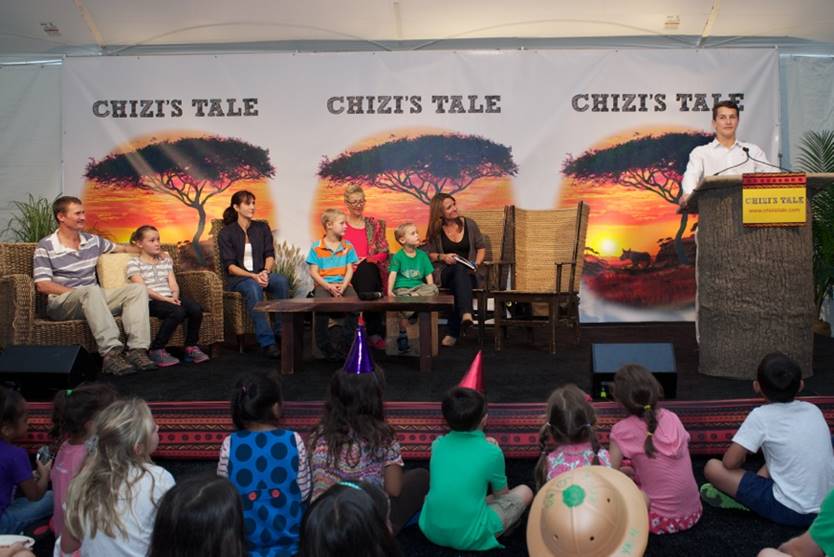 On Sunday, more than 300 people attended a launch party hosted by
On Sunday, more than 300 people attended a launch party hosted by 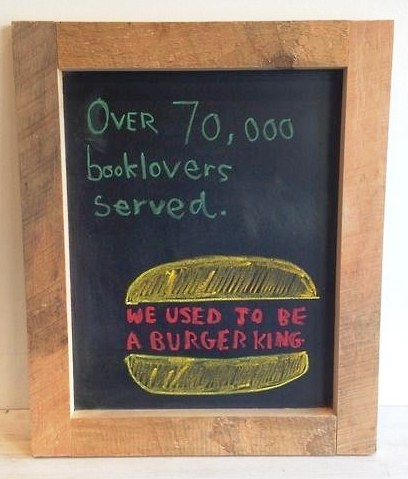 "Who knew the sidewalk could be such a weird and witty place?" asked Crown Publishing Group in a Buzzfeed post featuring "
"Who knew the sidewalk could be such a weird and witty place?" asked Crown Publishing Group in a Buzzfeed post featuring "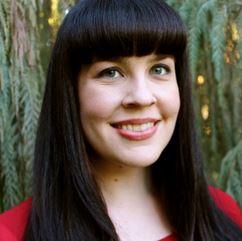 When you travel, do you stop at bookstores? Any particular indies make a lasting impression?
When you travel, do you stop at bookstores? Any particular indies make a lasting impression?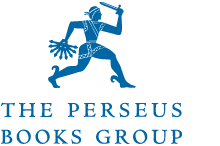 Perseus Books Group is restructuring its international sales and rights businesses, which group v-p Carolyn M. Savarese called "a significant area of growth in the publishing industry."
Perseus Books Group is restructuring its international sales and rights businesses, which group v-p Carolyn M. Savarese called "a significant area of growth in the publishing industry."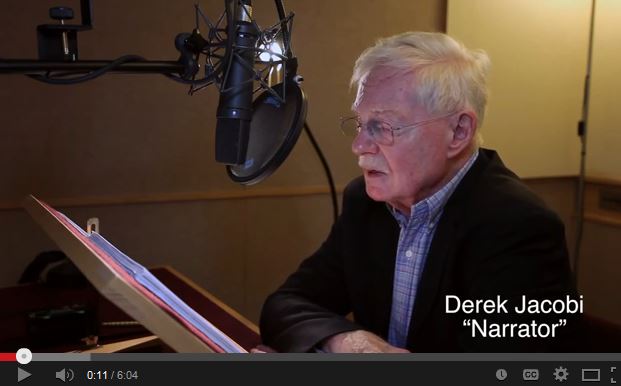 The trailer for this full-cast audio edition of Newbery Award winning
The trailer for this full-cast audio edition of Newbery Award winning 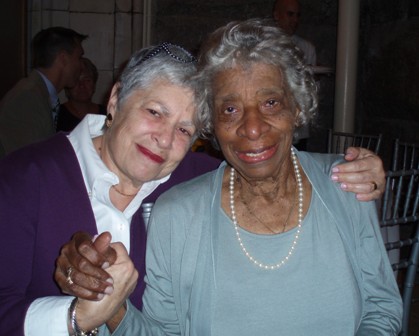
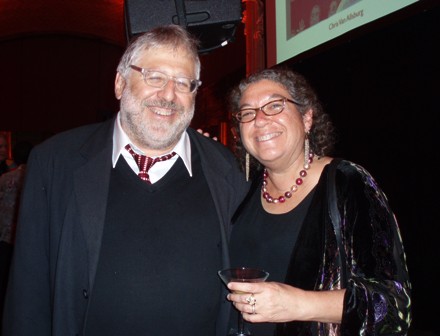
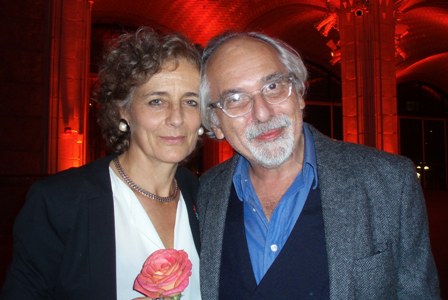
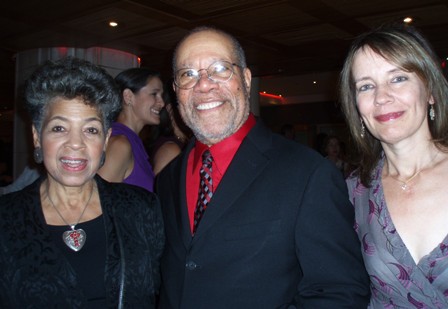
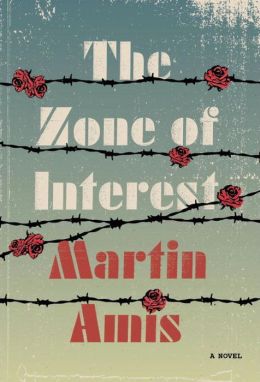 The title of Martin Amis's urgent and brilliant Zone of Interest refers primarily to its Nazi concentration-camp setting, which he featured in 1991's Time's Arrow. It also refers to a fable about a king whose magic mirror reflected the viewer's soul, a mirror no one could look at without turning away. The concentration camp becomes that mirror, and this novel tells the story of the men and women reflected in its glass.
The title of Martin Amis's urgent and brilliant Zone of Interest refers primarily to its Nazi concentration-camp setting, which he featured in 1991's Time's Arrow. It also refers to a fable about a king whose magic mirror reflected the viewer's soul, a mirror no one could look at without turning away. The concentration camp becomes that mirror, and this novel tells the story of the men and women reflected in its glass.